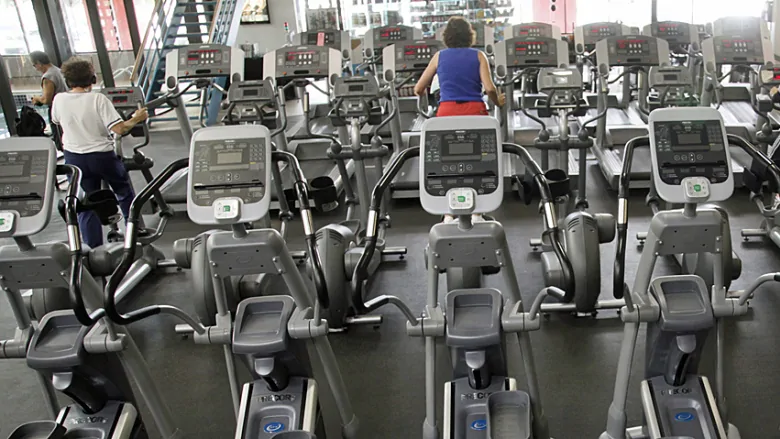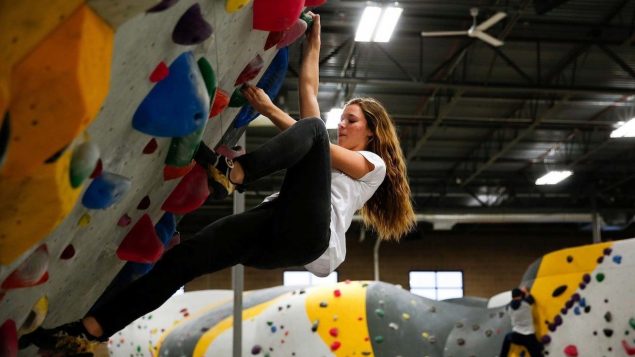If you’re like a lot of us you probably get fired up about starting a new exercise program that’s going to make you feel like a million bucks or–maybe–look like a million bucks.
So you kick it in.

Um, most of these exercise machines are midding riders. A new study four a whole lot of possible reasons. (cbc.ca)
You buy yourself a gym membership, or start jogging on sunny days, begin to take the steps–not the escalator–at the subway station, buy a bike, hit the swimming pool.
All of a sudden, you’re starting to feel a whole lot better.
You’re eating better, you’re sleeping better.

Determination is one thing. Perseverance may be another matter when it comes to exercise. (cbc.ca)
Chances are you’re also looking better
Then, slowly at first, those good feelings and that satisfaction start to wane.
Before you know it, you’re back on the couch for those 18 hours a week the average Canadian spends in front of the tube.
Thing is, you’re not the only one.
Get this: fifty per cent of us are done with our new exercise programs before we even reach the six-month mark.
Why?
Ah, there’s the rub.
A research team University of Alberta’s Faculty of Kinesiology, Sport, and Recreation decided to scratch that itch.

Heather K. Larson, a co-author of the University of Alberta study, is a PhD student who still coaches swimming and competes in masters competitions. (Courtesy: University of Alberta)
Their study is published in the July edition (Volume 37) of the journal Psychology of Sport and Exercise.
They researchers concluded that four major factors are at play in what they call the “fragile nature” of exercise motivation and the decision to drop out: “unrealistic outcome expectations, low scheduling self-efficacy, an unmet desire for social support and accountability.”
For how those words play out in real life, I spoke to one of the co-authors of the study, Heather K. Larson.
Larson is a PhD candidate writing her dissertation in sport psychology as she continues to coach swimming and compete in masters competitions.
I spoke by phone with her in Edmonton on Thursday.
Listen






For reasons beyond our control, and for an undetermined period of time, our comment section is now closed. However, our social networks remain open to your contributions.